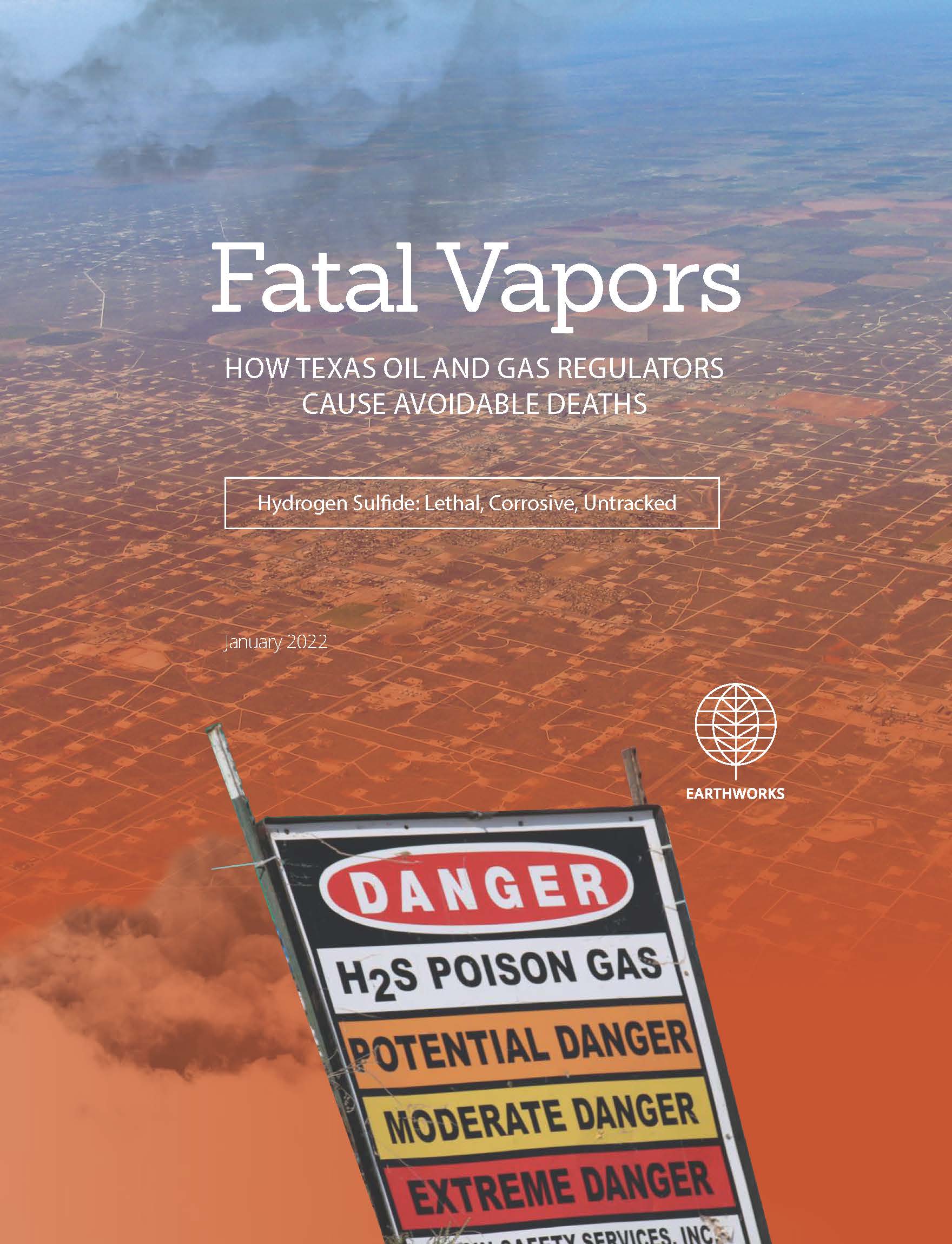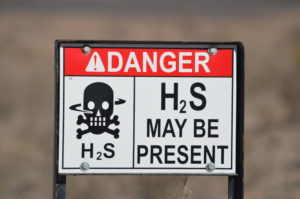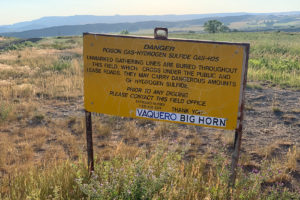From the Executive Summary:
Hydrogen sulfide gas (H2S or sour gas) associated with oil and gas production can be quickly lethal to those exposed, corrosive to many metals, and produces additional lethal compounds when burned.
In Texas, hydrogen sulfide associated with oil and gas production is predominantly regulated by the Railroad Commission of Texas (RRC), which oversees the oil and gas industry—not railroads.
The RRC implements Texas’ Rule 36, which obligates operators of certain gas wells to self-report the concentration of hydrogen sulfide in the gas that their wells produce and to comply with more or less stringent rules depending upon that concentration.
In this report, Earthworks analyzes this self-reported company data—or lack thereof—using information acquired from the RRC.
The RRC assigns all oil and gas fields in Texas an average concentration of hydrogen sulfide based upon RRC measurements. The RRC considers any oil or gas well drilled in a field with an RRC-assigned average concentration over 100 parts-per-million (ppm) to be “sour gas” and the operator is obligated to test their specific well’s concentration and report it through the Commission’s H9 form. In RRC District 8 alone—which includes west Texas’ Permian Basin—there are more than 1,000 oil and gas fields with hydrogen sulfide concentrations of over 100 ppm.
Key Findings
- Analysis of over 19,000 wells in RRC District 8 found over 10,000 thousand wells —51% of wells — did not file required H9s to assess and inform the state of the danger their well poses and if it must operate under oversight.
- The RRC is not tracking which wells require H9s — the RRC can’t determine who is violating the law because it doesn’t bother to keep track of who needs to comply with it.
- Among the operators who do file H9s, some operators appear to underreport hydrogen sulfide gas concentrations in order to avoid accountability measures.
- Existing hydrogen sulfide regulations are insufficient to mitigate health risks for both rig workers and the public — Poor regulation has resulted in numerous deaths due to hydrogen sulfide exposure; Regulations also fail to account for hydrogen sulfide’s role in producing sulfur dioxide, a known product of hydrogen sulfide combustion which also poses a major health risk.
For More Information
Your Support Makes Our Work Possible
Earthworks helps families on the front lines of mining, drilling, and fracking. We use sound science to expose health, environmental, economic, social, and cultural impacts of mining and energy extraction. To support our efforts, please consider a tax-deductible donation today that will go toward our work reforming government policies, improving corporate practices, influencing investment decisions, and encouraging responsible materials sourcing and consumption.



